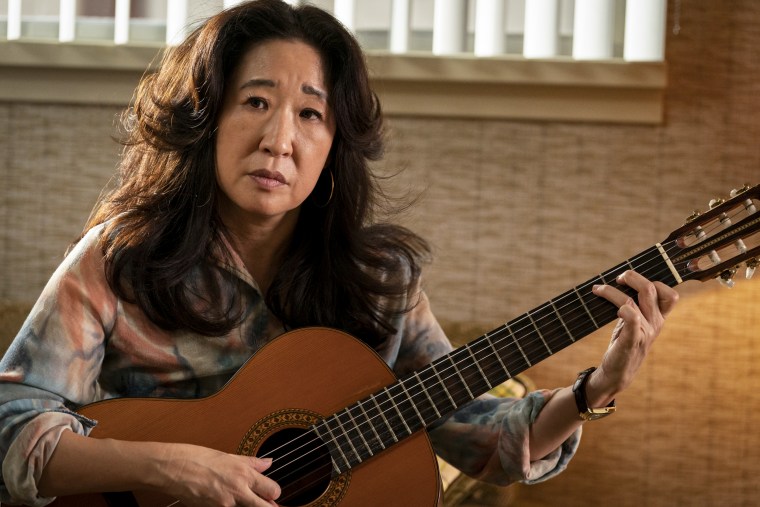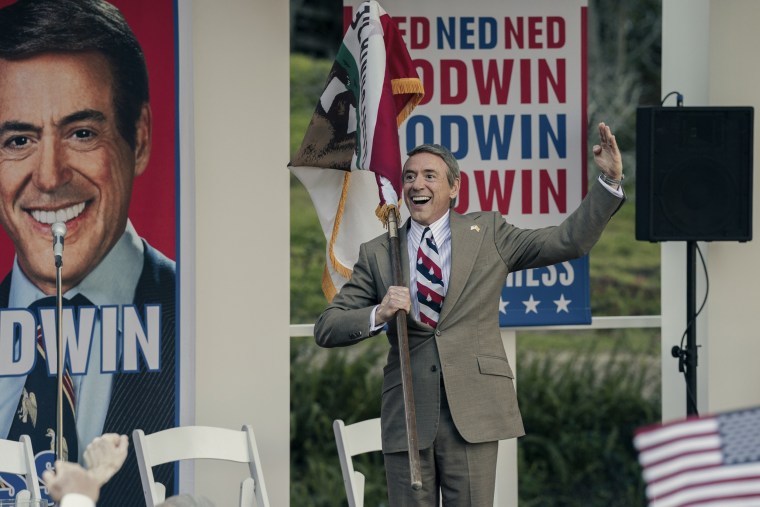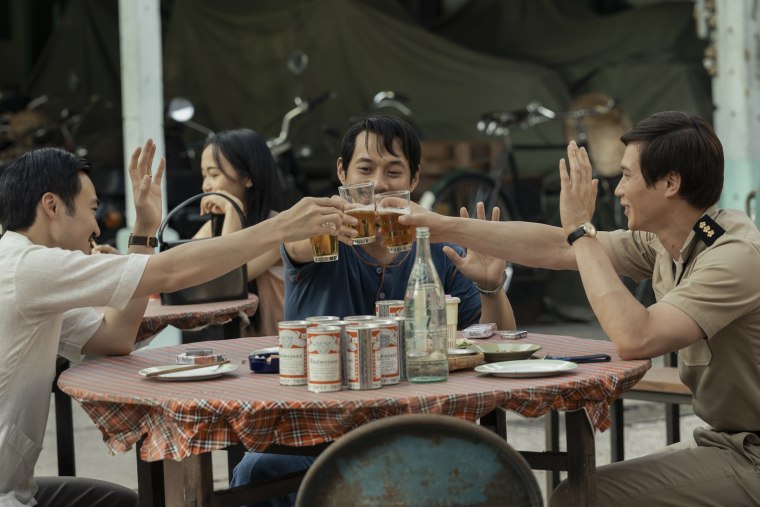The fall of Saigon has been a commonly depicted subject across Western media, but the portrayal in the new HBO drama series “The Sympathizer” — in which panicked families attempt to flee Vietnam under heavy fire — barely features any American GI. And that’s no coincidence, cast members say.
Hoa Xuande, who plays the main character only known to viewers as “the Captain,” and Sandra Oh, who plays his love interest, the sharp Sofia Mori, said that the show is meant to challenge dominant perceptions of the war. It reframes the narrative to center the plight of Vietnamese people who lived through it, rather than on the sacrifices of American soldiers.
“Depictions of the evacuation, especially through the American media … is the GI soldiers pulling ‘helpless’ Vietnamese people to the helicopters,” Xuande said. “It’s that savior complex that Americans have … that they’re at the forefront of this story helping, Vietnamese people who couldn’t apparently help themselves.”

Oh added that the show, which premiered on Sunday on HBO and Max, serves as a “major shift of perspective — and a perspective that has always been but has been sorely missing for five decades.”
The seven-episode series, based on Viet Thanh Nguyen’s Pulitzer Prize-winning novel of the same name, follows the Captain through his experiences as a spy for the North Vietnamese communists while serving in the South Vietnamese army as “the General”’s right-hand man.
His story — told through a series of flashbacks conjured by confessions he makes at a re-education camp in Vietnam — takes viewers through the end of the war to a new start in Los Angeles, where the Captain is tasked with keeping a close eye on the General’s activity.
Through it all, the Captain, who is the son of a French priest and a Vietnamese villager, grapples with his conflicting convictions, identities and sympathies. Oh’s character, a Japanese American feminist and advocate of “free love,” further amplifies his multilayered beliefs. The story of war, the series shows, cannot be told through a simple binary.

To convey these ideas, Xuande said, it was necessary to involve a mostly Vietnamese cast.
“Having a Vietnamese cast at the forefront of this, through their perspectives, it shows how we’re actually in control of our narratives,” Xuande, the son of Vietnamese refugees, said. “[How] the things that we felt were just as traumatic as what the American soldiers felt and how we had just as deep and complex lives, and hopes and dreams as people who were trying to survive that part of the conflict.”
Shifting any U.S.-centric ideas of the war also meant injecting a frequent use of the Vietnamese language throughout the series, Oh said. She estimates that more than half of the show is done in Vietnamese, which she said helped to de-exoticize it and show the language used as elegantly as it truly is.
“For the longest time you have again, an American perspective on all those war movies, right? So the only times that you hear Vietnamese is very, very limited. And even in the framing of those films. It’s not understood,“ she said. “It’s looked down upon so it gives the room for the freedom, or the allowance, for white people to make fun of the language, because it hasn’t been normalized.”

For Oh, the way in which she refers to the war has also changed.
“I’ve now started trying to change the way I even call the war — I say the ‘war in Vietnam,’ because the Vietnam War implies that we were at war with Vietnam, as opposed to the war that was happening” on Vietnamese soil, she said.
The actors pointed out that it’s no mystery why so many of Asian descent have had a difficult time reflecting on their cultural pasts and heritage, given the trauma embedded in many families’ stories.
“It takes a long time for one to be ready to see those images reflected back. How much do your your parents talk about it? They don’t talk about it because it’s so tough,” Oh said. “But here it is now depicted finally, from the inside point of view. Maybe that’s a step for a conversation to happen.”
But hopefully, the cast members say, the show can serve as a recognition. It’s already prompted Xuande’s parents to open up about their own experiences escaping to safety on a boat, the stars said.
“I’m sure the wider Vietnamese diaspora who had experienced this struggle firsthand will watch something like this and it’ll be cathartic to them in a way, whether they’re able to express it or talk about to the kids or even just be able to feel like, these struggles and trauma are validated,” Xuande said.